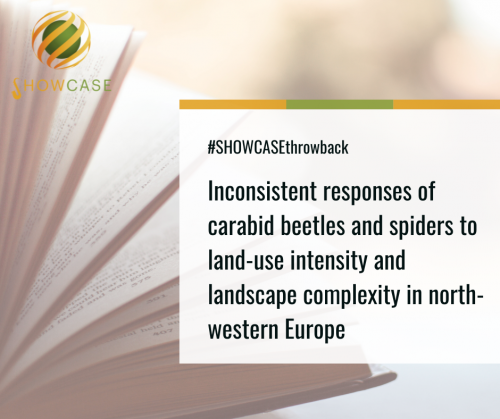This SHOWCASE-supported study aims to explore the intricacy between farming and biodiversity. It centres on examining how carabid beetles and spiders respond to the threats posed by chemical use in modern agriculture and the resulting homogenised landscapes on farmland. Up until now, there has been vast research in understanding crop pollinators' responses to environmental changes. However, knowledge about pest-controlling natural enemies and how they react to different factors is lacking.
Zulin Mei et al.’s paper examines natural enemy communities in 66 paired winter wheat fields across four north-western European countries. Its goal is to understand how these communities respond to landscape complexity, local land-use intensity, and soil organic matter, particularly exploring differences in responses between dominant and non-dominant species, taking spiders and carabid beetles as primary examples.
The research revealed contrasting responses of natural enemies to agricultural intensification, clarifying why efforts to boost these enemies often do not improve pest control or crop yield. The primary example of carabid beetles showed a positive relationship with soil organic carbon and local land-use intensity. Similarly, both dominant and non-dominant spiders exhibited connections to landscape complexity and yield. These results show that the restoration of semi-natural habitats holds significant promise in benefiting these species, which are particularly important for conservation efforts.
Read the full paper here.
